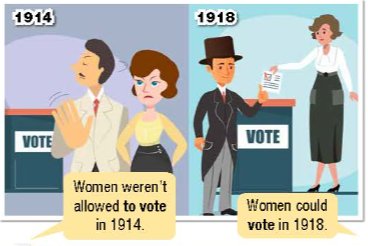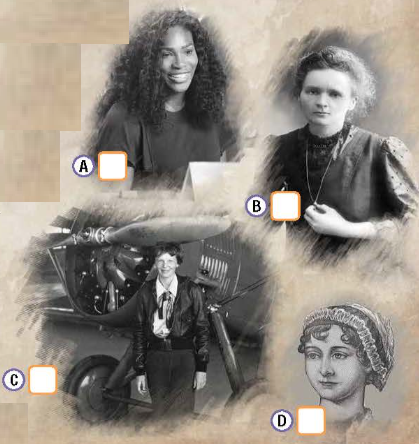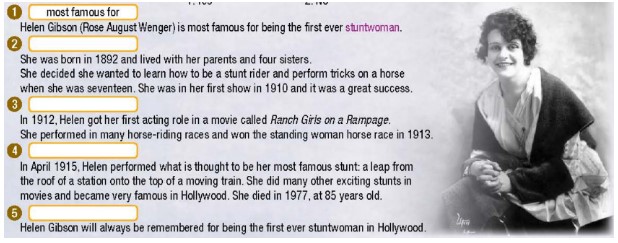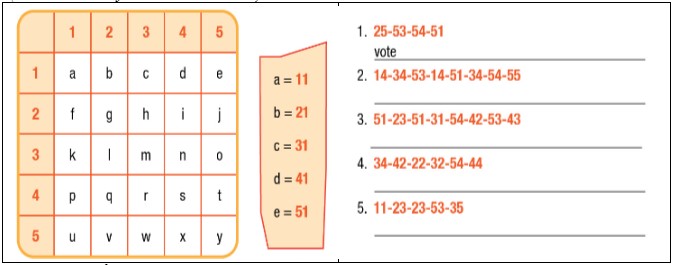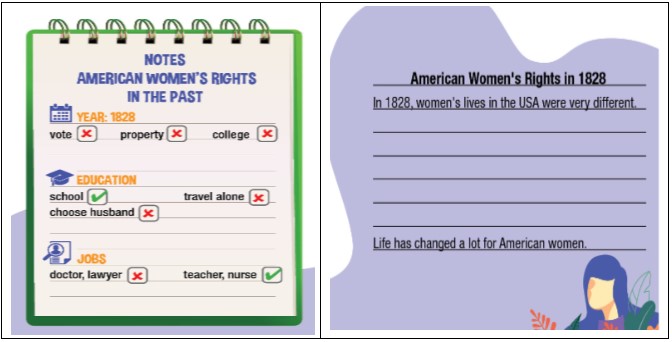Giải SGK, SBT Unit 5. Gender Equality iLearn Smart World
Giải SGK, SBT Unit 5 iLearn Smart World
b. Fill in the blanks using the verb in the box in the to-infinitive or bare infinitive form.
(Điền vào chỗ trống bằng cách sử dụng động từ trong ô ở dạng nguyên mẫu có to hoặc nguyên mẫu không to.)
| become (x2) fight vote (x2) clean earn |
1. Women were not allowed to vote until 1920.
2. English women started _______________ for gender equality in 1903.
3. The government let women _______________ combat soldiers in 1994.
4. Today women can _______________ the same pay as men.
5. Victorian women campaigned for the right _______________.
6. In 1979, people in Britain saw a woman _______________ Prime Minister for the first time.
b. In pairs: Discuss the ideas below using the new words.
(Theo cặp: Thảo luận các ý kiến bên dưới bằng cách sử dụng các từ mới.)
| passing exams your favorite team your parents doing exercise starting your own business completing a video game |
I’m determined to start my own business.
(Tôi quyết tâm bắt đầu kinh doanh của riêng mình.)


